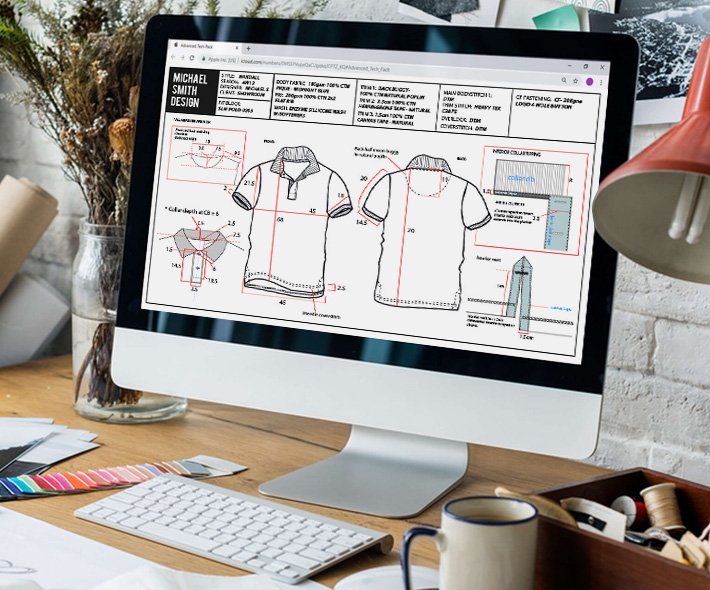Full Package Production (FPP) in apparel manufacturing offers a complete, end-to-end service covering every aspect of garment creation. Unlike traditional CMT (Cut, Make, Trim) manufacturing, which focuses only on sewing and trimming, FPP includes everything from design and material sourcing to production and delivery. This model is especially popular with major fashion brands, helping them streamline operations, speed up product launches, and explore new product categories.

The Full Package Production Process
1. Trend Research and Requirement Definition
In the initial stage, brands either provide specific designs or collaborate with the manufacturer to conduct trend analysis. This analysis ensures that the design concepts align with the target market and brand identity, setting the foundation for the production process.
2. Design Development
Once the direction is clear, the manufacturer creates initial sketches or digital prototypes, refining them into the final approved designs. At this stage, material choices and garment construction details are also determined to ensure the product meets the brand’s expectations.
3. Pattern Making and Digital Sampling
After finalizing the design, patterns are created for each garment. Many manufacturers now use 3D sampling technology to quickly test and adjust these patterns, ensuring a perfect fit before cutting any fabric. This reduces waste and speeds up the sampling process significantly.
4. Material Procurement
Once designs and patterns are approved, the manufacturer sources the necessary fabrics and trims. Some brands provide their own materials, while others rely on the manufacturer’s expertise in procurement. Proper sourcing is essential to maintaining high-quality standards.
5. Sample Creation and Product Engineering
Physical samples are produced to validate fabric choices, fit, and construction methods. During this phase, production times and resource consumption are calculated to ensure cost accuracy. Upon approval of the samples, the manufacturer moves on to full-scale production.
6. Bulk Production
With approved samples and materials in place, the manufacturer begins bulk production. This involves cutting fabric, assembling, sewing, and finishing each garment. Throughout the process, quality control measures are enforced to ensure consistency and compliance with brand standards.
7. Quality Control and Logistics
Before garments are shipped, they undergo rigorous quality checks to ensure they meet specifications. Afterward, logistics arrangements are made to deliver the final products to the client’s desired locations. Full Package manufacturers often manage international logistics, ensuring smooth deliveries and handling any required documentation for global shipping.
Advantages of Full Package Production
Efficient Use of Resources
Outsourcing to FPP manufacturers allows brands to focus on design and marketing while the manufacturer handles all production tasks. This frees up internal resources, such as labor and equipment, that would otherwise be tied up in production.
Faster Time to Market
FPP significantly shortens lead times, allowing brands to get their products to market much faster. With manufacturers handling everything from design to delivery, production cycles can be reduced by up to three times compared to in-house manufacturing.
Reduced Waste
Because manufacturers only produce the exact number of garments ordered, there’s less risk of overproduction or leftover materials. The use of digital sampling further reduces fabric waste in the design phase.
Flexibility and Specialization
Full Package manufacturers often specialize in specific types of garments, allowing brands to expand into new product categories without investing in additional resources. This makes it easy for brands to launch new lines, such as activewear or accessories, with minimal initial investment.
Disadvantages of Full Package Production
1.Higher Initial Costs
FPP services typically come at a higher price compared to traditional CMT manufacturing, as they include additional services like design, material sourcing, and project management. However, these higher costs can be offset by faster market entry and reduced waste.
2.Higher minimum order requirements:
It’s common practice in the fashion industry for manufacturers to prefer working with larger orders as it allows them to achieve greater efficiency and profitability. For perspective, a large retailer may order between 800-2.000 units per style or color, while a small, emerging brand may only require 12-50 units per style. At lightfogapparel, our minimum order is 100 units per style and color, however, we understand that this may not be suitable for all. That’s why we created lightfogapparel, a platform that allows for production of as low as 24 units per style.
Although this is our process, it may be similar to that of other companies dedicated to manufacturing under the full package production format.
If you think we can make a good fit for your needs, do not hesitate to contact us, but remember that our minimum is 100 units per reference and color.
We hope this article will help you resolve your concerns. If you need a costume, please email us with your request
